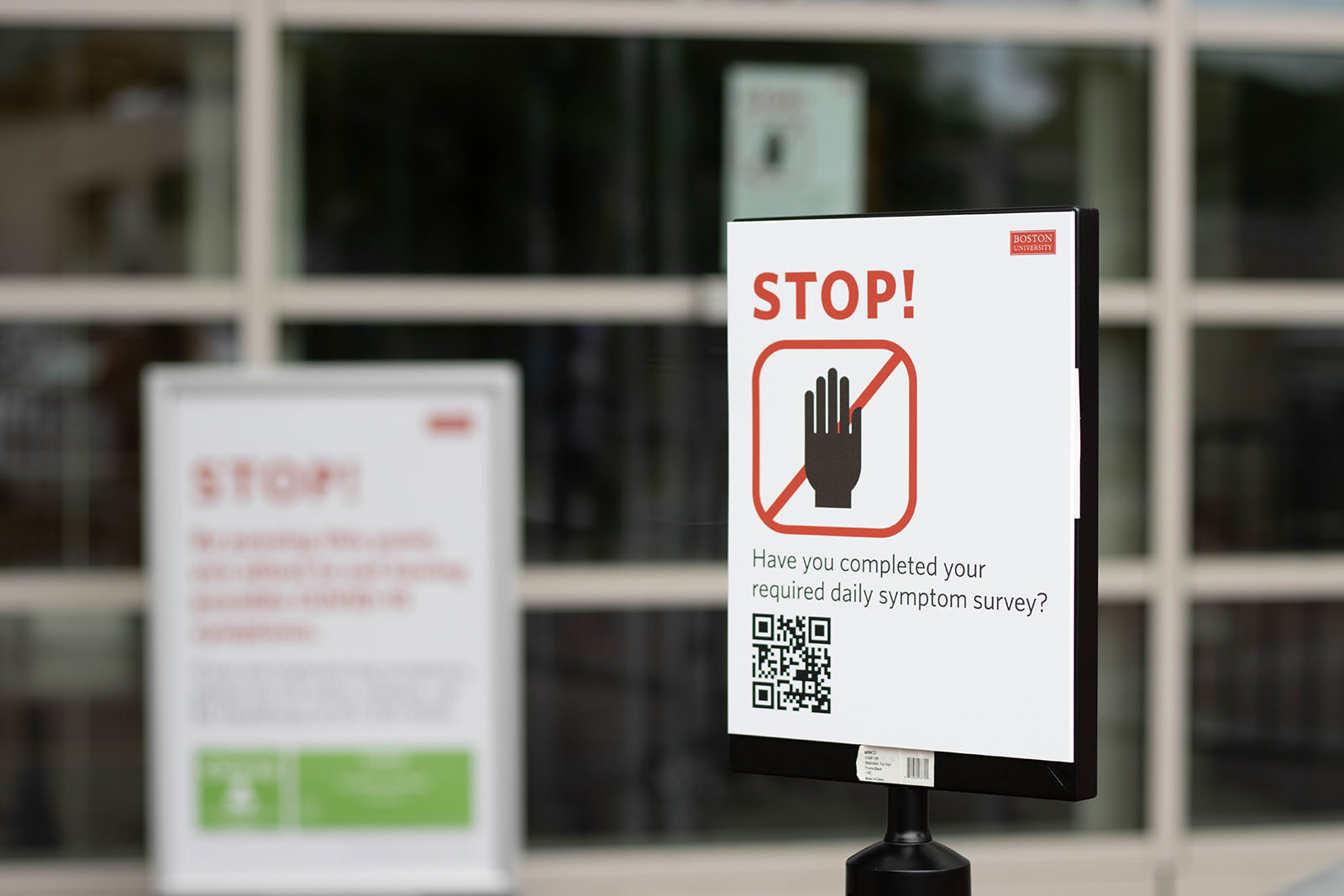Boston University experienced a spike in the on-campus positive test rate for COVID-19, as students, faculty and staff prepare for their return to campus after the holidays.
The number of students in isolation was nearly 70 as of Tuesday, exceeding the University’s Halloween spike in November, according to data provided by the BU COVID-19 Testing Data Dashboard.
BU Assistant Vice President of Public Relations and Social Media, Rachel Lapal Cavallario, wrote in an email that the spike can be attributed to students catching the virus off-campus during break and testing positive upon their return to Boston.

Another reason for the increase, Lapal Cavallario wrote, was BU opening its testing centers over the break to category four faculty, staff and graduate students — individuals who are studying and working remotely and were previously not part of the testing program.
“Though there has also been a post-holiday spike across the nation and within the city of Boston, BU’s positivity rate is still significantly lower,” Lapal Cavallario wrote.
Global Health Professor Davidson Hamer, a member of BU’s Medical Advisory Group, said it’s more difficult to contain the virus now than in the Fall semester, with a spike already occurring before the majority of the undergraduate population returns.
“The problem is this time, as opposed to August, we have a pretty good amount of transmission in Massachusetts,” Hamer said.
Lapal Cavallario cited BU’s plans to combat this tougher start with the same policies used in the Fall, as well as general safety guidelines.
“All the public health protocols for the fall semester – face coverings, physical distancing, testing, symptom attestation, and contact tracing – will continue to be in place for the spring semester,” Lapal Cavallario wrote.
Students returning to campus will be asked to increase their testing frequency in their first week on campus, she added, and are strongly encouraged to stay in place until they have three negative tests.
“We need to be really cautious over the next month or two and use masks and be cautious with large gatherings, or even small gatherings, and social distancing,” Hamer said. “All the measures we’ve been getting used to using during the Fall, we need to intensify them in the Spring.”
BU is expecting more students to return to campus this semester than in the Fall, Lapal Cavallario wrote, which raises concerns about isolation and quarantine housing capacity.
She added BU is “confident in its planning and preparation” and does not see issues arising with isolation bed capacity.
Hamer said — based on a large number of vacant isolation beds in the Fall — there should be no shortage of isolation housing available in the Spring, but he expressed concerns over quarantine housing capacity.
“I think the bigger fear is quarantine rooms,” Hamer said, “because if each person has two, three, four close contacts that need to be quarantined, and if those are all students that are living on campus, then the potential to saturate the quarantine rooms is higher than isolation [rooms].”
Neha Shabeer, a sophomore in the College of Arts and Sciences, said she was troubled by the virus’ surge going into the new semester.
“Obviously, I’m concerned,” Shabeer said. “I think the main thing that worries me, beyond just the Boston population spiking in cases, is also students coming from very different states and varied behaviors up during their break.”
One of Shabeer’s main concerns, she said, was students who engaged in high-risk behavior over the holidays and are bringing the virus back with them.
“The testing system’s really good,” Shabeer said, “but [students] might be going around and might be spreading COVID before they realize that they have it.”
Shabeer added she would prefer if BU had some way of implementing its restrictions to better ensure compliance.
“I think some additional things we could possibly do,” Shabeer said, “is maybe figuring out some way to enforce that stay-in-place period for students who are coming from high-risk states, and recommending that people even from low-risk states try to do that.”


























































































































